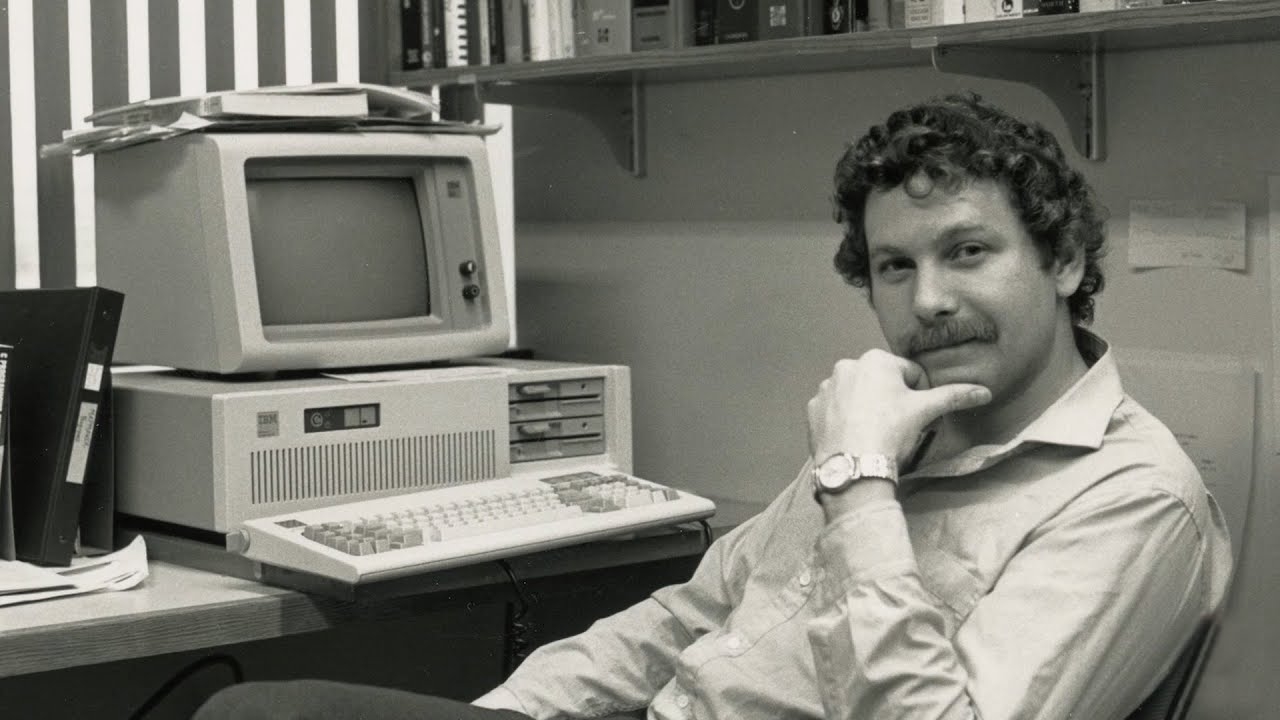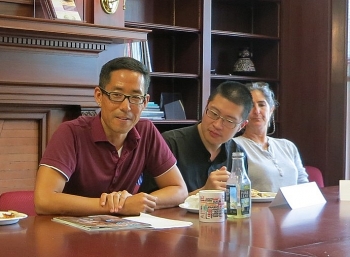Who is Eric Lander - Science nominees for Biden's administration: Biography, Life and Career?
 |
| Eric Lander. Photo: biology.mit.edu |
Who is Eric Lander?
Eric Steven Lander (born February 3, 1957) is an American mathematician and geneticist. Lander is a professor of biology at the Massachusetts Institute of Technology (MIT), a professor of systems biology at Harvard Medical School, a former member of the Whitehead Institute, and the founding director of the Broad Institute. He was co-chair of U.S. President Barack Obama's Council of Advisors on Science and Technology. He is a 1987 MacArthur Fellow. He is President-Elect Joe Biden's nominee for director of Office of Science and Technology Policy and adviser on science, which Biden has elevated to a cabinet post.
Early life
Eric Steven Lander was born and raised in Brooklyn, New York. His father was disabled by multiple sclerosis through much of Eric’s childhood and died when Eric was 11. Although Eric’s mother had been trained as an attorney, opportunities for women lawyers were few at the time, so she worked as a teacher to provide for Eric and his younger brother Arthur, reported Achievement.
Education
According to Broad Institute, He graduated from Stuyvesant High School, one of New York City’s public science high schools, where he was captain of the math team. In 1974, he won the Westinghouse Science Talent Search for work on number theory and was a member of the first U.S. team to compete in the International Mathematical Olympiad, in East Germany, where he received an individual silver medal and the U.S. team placed second.
In 1978 he earned a B.A. in mathematics from Princeton University, where he was a reporter for the student newspaper and served on the university’s budget-setting committee. He credits John McPhee’s legendary course, The Literature of Fact, for a life-long passion for non-fiction writing. He was valedictorian of his class and received the Pyne Prize, the highest distinction conferred by the university upon an undergraduate.
As a Rhodes Scholar from 1978 to 1981, he attended Oxford University, where he earned a D. Phil. in mathematics. His thesis, on algebraic combinatorics and coding theory, under the supervision of Peter Cameron, focused on applications of group representation theory to information theory and became a book, Symmetric Designs: An Algebraic Approach, published by Cambridge University Press (1983).
Career
Harvard Medical School
Following his graduate work, Lander took up a faculty position at Harvard Business School, where he served as assistant and associate professor from 1981 to 1990. He taught courses on managerial economics, decision analysis, and bargaining.
Lander is a professor of biology at MIT and a professor of systems biology at Harvard Medical School. From 2009 to 2017, he served as co-chair of the President’s Council of Advisors on Science and Technology for President Barack Obama.
According to buildbackbetter, The Broad Institute of MIT and Harvard is one of the leading non-profit biomedical research institutes in the world, which brings together biologists, clinicians, chemists, engineers, mathematicians, software engineers, and computational scientists to propel the understanding and treatment of diseases — and which, since March 2020, has also been a major COVID-19 viral testing lab, processing about 1 in every 30 COVID-19 tests nationwide in recent months and focusing on the needs of public and non-profit settings.
Scientific work
 |
| Photo: biology.mit.edu |
Lander’s scientific work—carried out in collaborations with many colleagues, including trainees, professional scientists, and colleagues at the Broad and around the world—has focused on understanding the human genome and its uses in medicine. In support of this work, he played a pioneering role in all aspects of the mapping, sequencing, and characterization of the human genome—including being one of the principal leaders of the international Human Genome Project from 1990 to 2003.
In 1985, Lander and Botstein began to work together to lay key foundations of modern human genetics. In a seminal paper in 1980, Botstein had described how one might create a genetic map of the human genome based on DNA polymorphisms and use it to systematically map genes for rare Mendelian diseases by tracing the inheritance of polymorphisms in affected families.
The pair collaborated to create the first human genetic map: Botstein launched an experimental group to discover and genotype polymorphisms; Lander discovered and applied algorithms that made the analysis feasible. This work resulted in the first genetic linkage map of the human genome, published in 1987.
In parallel, Lander and Botstein discovered principles to extend human genetics from family-based mapping of rare monogenic disorders to population-based mapping of any disease or trait, including common polygenic diseases—by using much denser genetic maps to recognize shared ancestral segments in affected individuals.
Over the next 30 years, these genetic principles have led to the identification of more than 6,000 genes responsible for rare Mendelian diseases and more than 100,000 genetic loci contributing to scores of common human diseases and traits—including inflammatory diseases, heart disease, psychiatric disorders, diabetes, and many more. It also led to the identification of hundreds of genomic regions that have been under strong positive selection in recent human history, pointing to genetic variants that confer advantages, such as protection against infectious diseases.
Lander and his team also decoded genomic information in the mouse. He created the first genetic maps of DNA polymorphisms and the first physical map of the mouse genome. He led sequencing of the mouse genome (and later dog, chimpanzee, marsupial, and other genomes)—and used comparative genome maps to identify the 21,000 human genes and discover millions of conserved non-coding elements, finding they are more abundant than protein-coding sequences. These evolutionary comparisons also revealed unexpected mechanisms for functional innovation, including a key role for transposons.
He also developed other genome-wide maps, including those of epigenome modifications and three-dimensional folding. The work has revealed the presence of many functional non-coding RNAs and rules governing gene regulation, including promoter-enhancer interactions.
Lander made important contributions to cancer genomics, including developing general methods to discover cancer subtypes based on gene expression and identifying new cancer genes based on genome sequencing. He chaired a committee for the National Cancer Institute that in 2005 proposed The Cancer Genome Atlas, a project to create a comprehensive map of cancer genomes.
Honors and awardsLander’s honors and awards include the MacArthur Fellowship, the Breakthrough Prize in Life Sciences, the Albany Prize in Medicine and Biological Research, the Gairdner Foundation International Award of Canada, the Dan David Prize of Israel, the Mendel Medal of the Genetics Society in the UK, the City of Medicine Award, the Abelson Prize from the AAAS, the Award for Public Understanding of Science and Technology from the AAAS, the Woodrow Wilson Prize for Public Service from Princeton University, the James R. Killian Jr. Faculty Achievement Award from MIT, and the William Allan Award from the American Society of Human Genetics. |
For more information about Biden's pick for his administration, click here!
 Who is Francis S. Collins - US Director of the National Institutes of Health: Biography, Life, Career Who is Francis S. Collins - US Director of the National Institutes of Health: Biography, Life, Career Among all the potential candidates, U.S elected president Joe Biden has picked Francis S. Collins to extend his tenure as Director of the National Institutes ... | |||
|





























